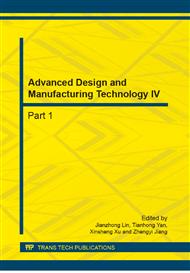[1]
Arseniev D.G., Vatin N.I. International relations in construction education and science (2012) Construction of Unique Buildings and Structures, 2, pp.1-5. (rus).
Google Scholar
[2]
Arseniev D.G., Vatin N.I., Vysotskiy A.E. International Polytechnical Summer School Civil Engineering and Design, in SPbSPU (2012) Construction of Unique Buildings and Structures, 5, pp.1-5. (rus).
Google Scholar
[3]
Arseniev D.G., Rechinskiy A.V., Vatin N.I., Gamayunova O.S. QS criteria as a basis for evaluation of the Institute of Civil Engineering of the Saint-Petersburg State Polytechnical University (2014).
Google Scholar
[4]
Gamayunova O.S., Yershov V.V., Ilin A.A., Li S.I., Sokolov B.V. Education in construction safety area (2012) Construction of Unique Buildings and Structures, 5, pp.26-30. (rus).
Google Scholar
[5]
Zabelevskaya Yu.A., Chernogorskiy S.A., Shvetsov K.V. Analysis of international migration processes in the St. Petersburg (2012) St. Petersburg State Polytechnical University Journal. Economics, T. 6, 161 (161), pp.249-253. (rus).
Google Scholar
[6]
Information on http: /www. spbstu. ru.
Google Scholar
[7]
Rechinskiy A. V., Vatin N. I., Gamayunova O. S., Usanova K. Yu. Fundamental and polytechnical experience of construction education with using Moodle (2012) Construction of Unique Buildings and Structures, 2, pp.6-17. (rus).
Google Scholar
[8]
Rechinskiy A.V., Strelets K.I. Professional development for design and construction of especially dangerous, technically difficult and unique objects (2012) Construction of Unique Buildings and Structures, 1, pp.74-76. (rus).
Google Scholar
[9]
Rechinskiy A.V., Strelets K.I. Professional retraining of specialists in the construction industry in the light of the concept of Education through all life, (2012) Construction of Unique Buildings and Structures, 1, pp.70-73. (rus).
Google Scholar
[10]
Number of students and staff of educational institutions of the Russian Federation. (Outlook 2020 and assessment of trends to 2030). Moscow: Center for Social Forecasting and Marketing (2013), p.170.
Google Scholar
[11]
Gorbunovs, A., Kapenieks, A., Kudina, I. Competence development in a combined assessment and collaborative e-portfolio information system (2013) Procedia Computer Science, 26, pp.79-100.
DOI: 10.1016/j.procs.2013.12.009
Google Scholar
[12]
Kaklauskas, A., Daniunas, A., Amaratunga, D., Urbonas, V., Lill, I., Gudauskas, R., D'amato, M., Trinkunas, V., Jackute, I. Life cycle process model of a market-oriented and student centered higher education (2012).
DOI: 10.3846/1648715x.2012.750631
Google Scholar
[13]
Kaklauskas, A., Vlasenko, A., Raudonis, V., Zavadskas, E.K., Gudauskas, R., Seniut, M., Juozapaitis, A., Jackute, I., Kanapeckiene, L., Rimkuviene, S., Kaklauskas, G. Student progress assessment with the help of an intelligent pupil analysis system (2013).
DOI: 10.1016/j.engappai.2012.01.006
Google Scholar
[14]
Kaklauskas, A., Zavadskas, E.K., Seniut, M., Stankevic, V., Raistenskis, J., Simkevičius, C., Stankevic, T., Matuliauskaite, A., Bartkiene, L., Zemeckyte, L., Paliskiene, R., Cerkauskiene, R., Gribniak, V. Re-commender system to analyze student's academic performance (2013).
DOI: 10.1016/j.eswa.2013.05.034
Google Scholar
[15]
Kaklauskas, A., Zavadskas, E.K., Seniut, M., Vlasenko, A., Kaklauskas, G., Juozapaitis, A., Matuli-auskaite, A., Kaklauskas, G., Zemeckyte, L., Jackute, I., Naimaviciene, J., Cerkauskas, J. Biometric and intelligent student progress assessment system (2013).
DOI: 10.1007/978-3-642-34300-1_6
Google Scholar
[16]
Kalnins, S.N., Valtere, S., Gusca, J., Valters, K., Kass, K., Blumberga, D. Cooperative problem-based learning approach in environmental engineering studies (2014) Agronomy Research, 12 (2), pp.663-672.
Google Scholar
[17]
Petrovica, S. Adaptation of tutoring to students' emotions in emotionally intelligent tutoring systems (2013) 2013 2nd International Conference on E-Learning and E-Technologies in Education, ICEEE 2013, art. no. 6644361, pp.131-136.
DOI: 10.1109/icelete.2013.6644361
Google Scholar
[18]
Vitolina, I., Kapenieks, A. E-inclusion measurement by e-learning course delivery (2013) Procedia Computer Science, 26, pp.101-112.
DOI: 10.1016/j.procs.2013.12.010
Google Scholar
[19]
Witt, E., Lill, I., Malalgoda, C., Siriwardena, M., Thayaparan, M., Amaratunga, D., Kaklauskas, A. Towards a framework for closer university-industry collaboration in educating built environment profes-sionals (2013).
DOI: 10.3846/1648715x.2013.805702
Google Scholar


